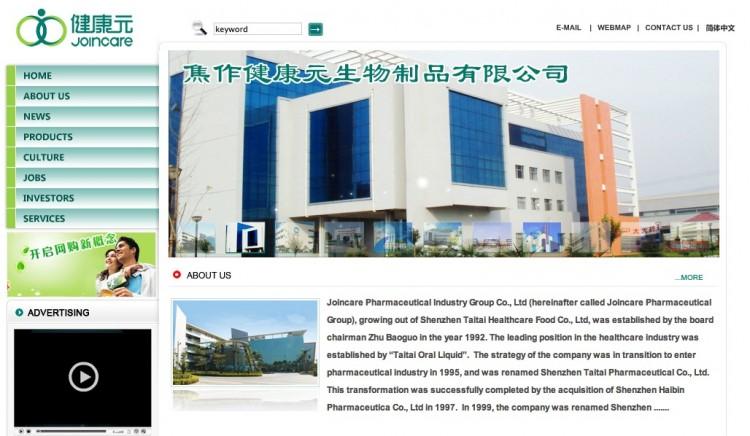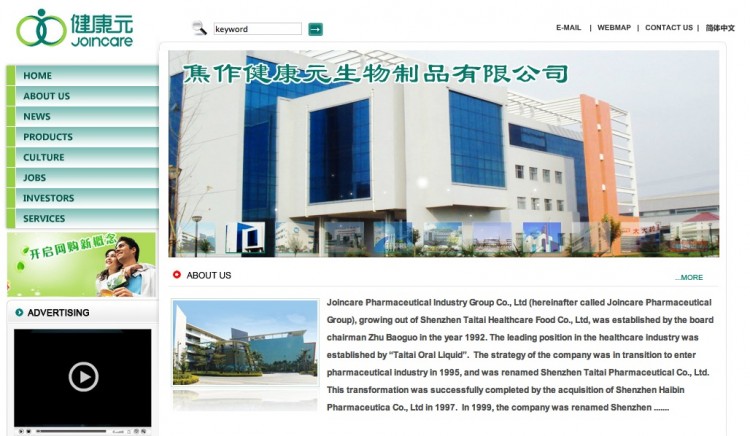A major pharmaceutical company in China has been discovered to be using waste oil in its antibiotic products recently, attracting criticism from the public and experts.
Joincare Pharmaceutical Industry Co., Ltd, based in the economic zone of Shenzhen, was shown to have purchased 16,200 tonnes of “gutter oil,” also called waste oil, from a Henan-based supply company from early 2010 to July 2011, worth 145 million yuan ($23 million).
The company was using the waste oil in its 7-ACA antibiotic intermediate, which it then sold to over 100 other companies for the production of medication and resale to consumers, according to Beijing News.
The news was revealed in a recent court case in the Ningbo City Court on Aug. 28. The case did not directly involve Joincare, but revealed that Joincare had bought the product from Henan Huikang Industrial, a Henan-based supplier of building materials and chemical products, which was involved in the lawsuit.
The use of waste oil for making antibiotics is troubling to some Chinese and industry experts, who say that the oil is not safe for human consumption. Waste oil is often made from reprocessing oil scraped from restaurant drains, waste bins, or made from decomposing animal fat and organs by underground suppliers.
Liu Deng, professor of Beijing University of Science and Technology, said that waste oil gains negative publicity because it’s toxic. “The government only approved its usage as bio-diesel and some other applications,” he said in an interview with Chinese media. “It is not allowed on the dinner table in people’s lives, let alone the much more vigorously regulated pharmaceutical industry.”
Joincare chairman, Zhu Baoguo, defended his company in a telephone conference with brokerage firms and journalists on Aug. 30, according to Shanghai Securities News. He said it was harmless and a common practice in foreign countries. “Can you say food is poisonous if the plants were fertilized with human excrement? There have been no incidences of quality issues due to the use of 7-ACA.”
Wu Huifang, the general manager of healthoo.net, a healthcare information website, defended Joincare on the same brokerage call, saying: “Waste oil used as microbe fermentation material is fundamentally different from being used as food product. Waste oil supplies the needed nutrient for the microbes, but is not directly consumed as a supplement.” She also gave the fertilizer example.
The same day, Joincare announced on its website that it is not actually in the drug manufacturing business, but is an industrial chemical company, and follows state regulations for the chemical industry.
Trading in Joincare’s stock was stopped on Aug. 30, after it fell more than 10 percent. Chinese securities regulators have a 10 percent daily decline or increase in stock prices, after which the security is prevented from further trading.
Mr. Cheng, a citizen of Guangzhou Province, was not convinced by Joincare’s explanation. “Even if there is no harm using waste oil to manufacture drugs, the company has the obligation to inform consumers of this fact,” he said in an interview with Southern Daily. “Is there any company that dares to list waste oil as one of the ingredients?”
Read the original Chinese article.
The Epoch Times publishes in 35 countries and in 19 languages. Subscribe to our e-newsletter.





